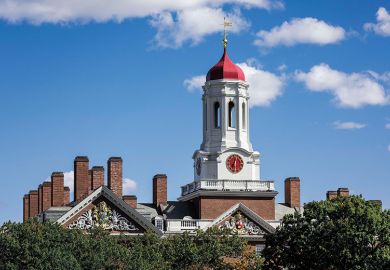Former Michigan governor Rick Snyder has withdrawn from a planned Harvard University fellowship, acceding to protests over his role in a massive drinking water contamination scandal in the low-income city of Flint.
Harvard, which has faced public protests over controversial appointments in the past and relented under some of them, made clear that it endorsed Mr Snyder’s retreat.
“We and he now believe that having him on campus would not enhance education here in the ways we intended,” the dean of the Harvard Kennedy School, Douglas Elmendorf, said in a note to the school community.
Mr Snyder left office in January after eight years because term-limit rules barred him from seeking re-election. Professor Elmendorf announced last week that he would become a senior research fellow at the Kennedy School’s Taubman Center for State and Local Government.
But critics inside and outside Harvard began protesting the appointment, citing the state government’s role in the drinking water crisis in Flint, a black-majority city of about 100,000 people with incomes well below state-wide and national averages. Flint residents began ingesting lead and other contaminants in 2014 after a state-appointed emergency manager switched their water supply to a lower-cost local plant. Effects included an outbreak of Legionnaires’ disease that infected 90 people and killed 12.
Opponents of Mr Snyder’s planned fellowship included Timothy McCarthy, a Kennedy School lecturer, who asked on Twitter “why a man who is under legal investigation for poisoning a city full of black folks is coming to teach our students”.
Mr Snyder, writing on Twitter, announced he was backing down. “It would have been exciting to share my experiences, both positive and negative,” he wrote. “Our current political environment and its lack of civility makes this too disruptive.”
His decision comes barely a month since Harvard faced questions about its commitment to academic freedom after announcing that Ronald Sullivan, under protest for serving on Harvey Weinstein’s legal defence team, would not continue as a faculty dean of Winthrop House.
And in 2017, Professor Elmendorf called Chelsea Manning, the former US soldier imprisoned for leaking military secrets, to revoke her visiting fellowship at the Kennedy School after pressure from the CIA. Around the same time, however, the Kennedy School resisted calls to rescind fellowships to Donald Trump aides Corey Lewandowski and Sean Spicer.
Also, last month, Harvard rescinded the admission granted to a survivor of last year’s Parkland high school shooting in Florida after learning that the student repeatedly used racial slurs in social media postings.
Register to continue
Why register?
- Registration is free and only takes a moment
- Once registered, you can read 3 articles a month
- Sign up for our newsletter
Subscribe
Or subscribe for unlimited access to:
- Unlimited access to news, views, insights & reviews
- Digital editions
- Digital access to THE’s university and college rankings analysis
Already registered or a current subscriber?








